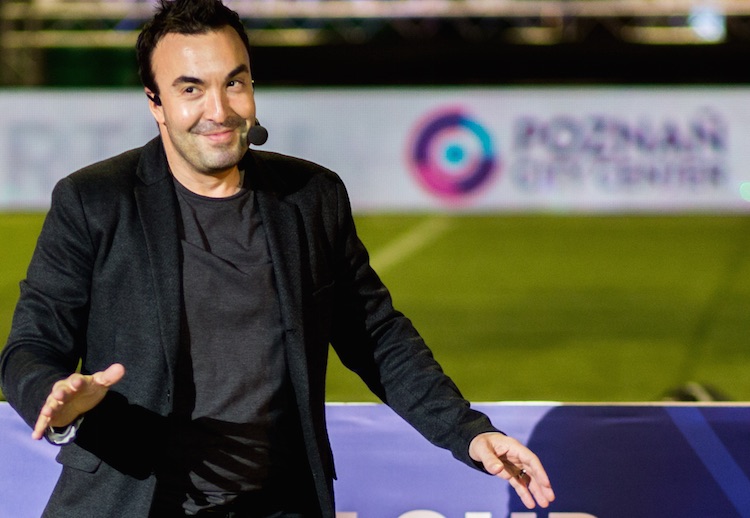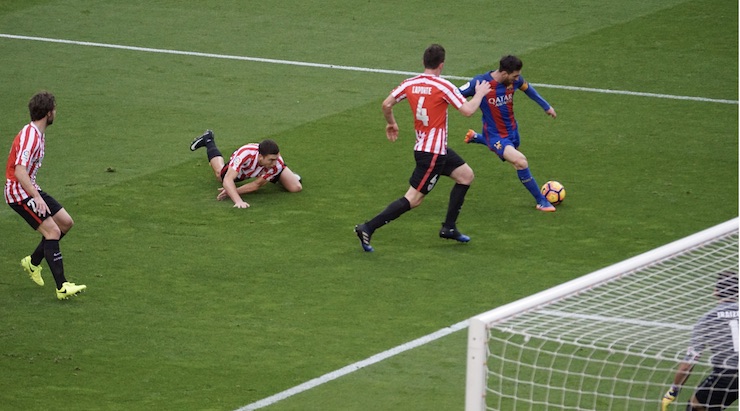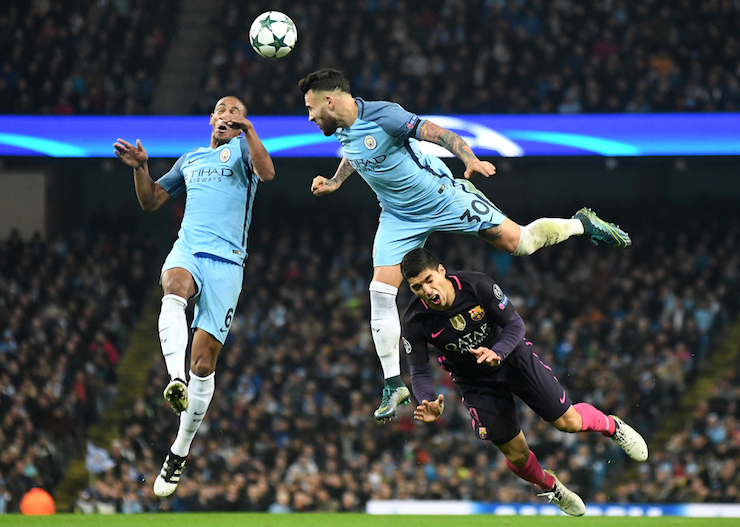DAN ABRAHAMS: Soccer Is A Mindset Game — Part 2
SoccerToday’s columnist Dan Abrahams shares his insights and advice on success being a game of mindset and how understanding this can help players of all ages. A global sport psychologist and author specializing in soccer, Abrahams is based in England and works with professional soccer players in the English Premier League (EPL).
 Abrahams has helped hundreds of soccer players – many of them who play in the English Premier League (EPL) and others who play across Europe. A recent example of his work includes helping Yannick Bolasie make an enormous impact on the EPL for Crystal Palace. Abrahams has held contracts with QPR, Fulham, and West Ham among other clubs and works quietly, behind the scenes with many coaches from top clubs across Europe.
Abrahams has helped hundreds of soccer players – many of them who play in the English Premier League (EPL) and others who play across Europe. A recent example of his work includes helping Yannick Bolasie make an enormous impact on the EPL for Crystal Palace. Abrahams has held contracts with QPR, Fulham, and West Ham among other clubs and works quietly, behind the scenes with many coaches from top clubs across Europe.
Soccer News: In part two of my article Soccer is a Game of Mindset, I’m going to introduce you to a second reason as to why that grey matter matters.
I write this the day after a massive upset in the Champions League here in Europe. In a historic shakeup, Paris St Germain (PSG) beat FC Barcelona four-nil – a result that has sent shock waves around the soccer globe.

Very rarely do we see Messi, Neymar, Suarez, Iniesta and teammates lose in such overwhelming fashion.
And, the match statistics should trouble Luis Enrique, the Barcelona manager. PSG had 10 shots on target against just one from Barcelona — with the French team also collectively running more (112.1km against 104km) and working harder to win back the ball (46 recoveries against 36).
I refer to this match because I think it demonstrates neatly how things on the soccer pitch, even for the very best players, can go so very wrong.
Even Messi, Neymar and Suarez have poor games. They have average games.
Messi, Neymar and Suarez not always at their very best. The greatest names to play our favourite game — soccer — aren’t always consistent.

Soccer is a game of chance and more than other American sports, it is a game of individuals who are not always consistent.
It is this inconsistency that lies close to the heart of the human challenge of soccer.
The game itself, in many respects is simple – keep the ball, defend without the ball. But it’s the players themselves that make soccer complex.
Soccer is simple, people are complex.
With this statement in mind I want to offer you my second reason as to why soccer is a game of mindset (see my last article for the first reason). Soccer is a game of mindset because of the 2 M’s – Mood and Motivation
A Soccer Player’s Mood
Your mood is, in simple terms, designed to be variable. We’ve evolved to experience bad moods because they’ve helped us survive. Without going into enormous detail, research has shown that negative moods can help us problem solve. They can help us think carefuly about a troublesome situation. Negative thinking can really help sometimes. This is why negative moods are part of the human package that makes us human.

But negative moods might not necessarily help a soccer player. A negative attitude doesn’t make a great teammate. A negative mood can cause a player to compete with tunnel vision (so he or she sees less). It can make a player feel sluggish and lethargic.
The challenge we have as soccer playing human beings is that moods so often just happen to us.
A change of mood happens, when it comes to soccer, can impact a player’s game.
Soccer is a game of mindset because players need to know how to manage their moods before, during and after they train and compete.
A Soccer Player’s Motivation
Motivation can be similar to mood, it can come in waves and it can come and go.
One soccer game you really feel up for it. The next you struggle to get into second gear. One training session you feel ready to develop your skills, the next session you betray yourself – you don’t run as hard or as fast, you don’t try as hard to get to the player you’re marking.
There are many theories of motivation in the world of academic psychology. It turns out that your brain plays a big part in this most frustrating of human quality. Specifically, the chemicals that the brain releases.

A team of scientists from Vanderbilt mapped the brains of people they called “go-getters” and “slackers.” They found that people willing to work hard had higher dopamine levels in areas of the brain known to influence motivation. Among slackers, dopamine was present in an area of the brain involved in emotion and risk perception.
Low levels of the chemical dopamine makes people less likely to work for things. Dopamine makes a difference.
Whatever the underlying neuroscience or psychological theories underpinning motivation are, the reality is that motivation increases and decreases, and so often from a place beyond our control.
The champions of soccer find a way to ignore how they FEEL, and they go train anyway.
The real champions among us find a way to ignore the FEELING of a lack of motivation and they play their hardest no matter what.

Champions so often ignore feelings and work their hardest all the time.
They train and play at the right intensity even when their body is telling them that it doesn’t want to.
Soccer is a game of mindset because mood and motivation vary from day to day. As a soccer player you have to deal with this and overcome this. Regardless if you are a professional player, or a youth soccer player dreaming of making it as a pro.

DAN ABRAHAMS: Soccer Is A Mindset Game — Part 1 with advice and information was published earlier this month.
Related Articles: Size Doesn’t Matter in Soccer ” I Have a Dream…”; What Soccer Coaches Want From Players
Dan Abrahams is a global sport psychologist specializing in soccer. He is based in England and has some of the leading turn-around stories and case studies in English Premier League history.
Abrahams is sought after by players, coaches and managers across Europe and his soccer psychology books are international bestsellers. He is formerly a professional golfer, is Lead Psychologist for England Golf and he holds a degree in psychology and masters degree in sport psychology.
Related Articles: Dan Abrahams on SoccerToday







